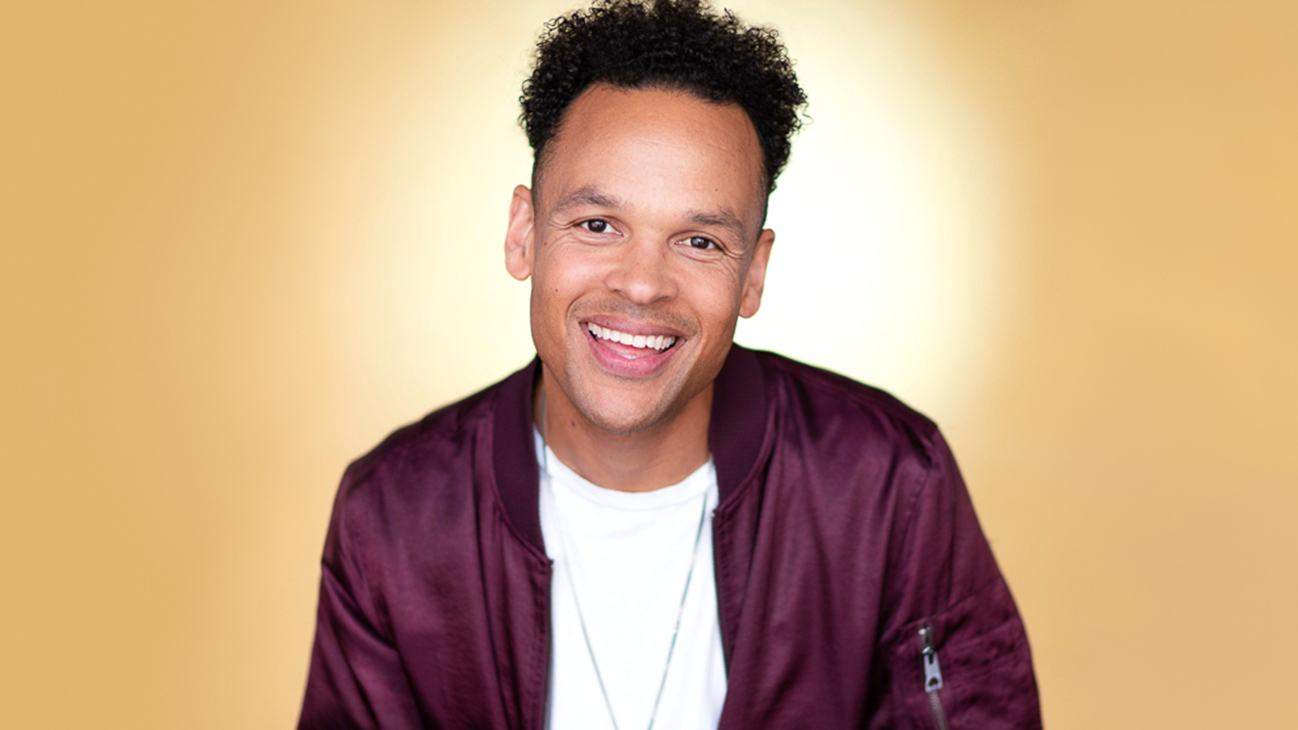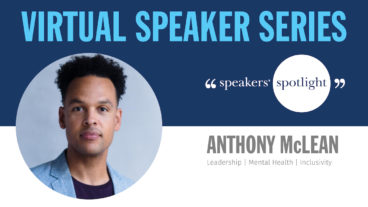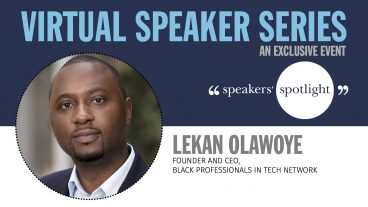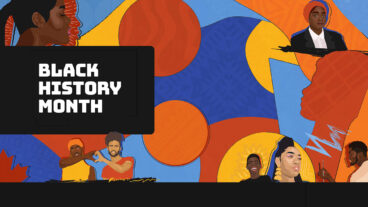This year’s theme of Black History Month is “Ours to Tell” and represents the opportunity that February brings us every year — to engage in open dialogues and and learn more about the stories Black communities in Canada want to share about their histories, successes, sacrifices, and triumphs.
Anthony McLean celebrates this theme in his new keynote, available exclusively to our clients, “Black History: Then and Now”. Anthony is an incredible speaker who uses his background in theatre to deliver lively, upbeat presentations on what can be difficult subjects, including anti-racism, diversity and inclusion, and mental health. He always leaves his audiences inspired to bring their best every day.
With his new keynote, Anthony delivers a fascinating and inspirational exploration of where we were and where we’re going when it comes to racial equity. It celebrates the progress we’ve made while encouraging audiences to continue on this journey.
We recently spoke with Anthony about his new talk and Black History Month, and why it’s so important to reflect on our past to ensure we build an equitable future, and how true allyship is key to making a difference.
SpSp: How does reflecting on the past help us move forward?
Anthony McLean: If you look around at the world today, especially in the context of racism, you can get discouraged and believe that we’re in a really bad place right now. We’re seeing a lot of racially motivated hate not just against black people, but other racialized communities as well like Asians, and it can feel scary and like we’re living in a scary time.
Looking back is so important because it shows that we have made strides. Persecuting someone for their race isn’t new, it’s happened globally and throughout history. Look at Viola Desmond, a businesswoman is Canada who couldn’t even go into a theatre. It’s important to look at history to understand that racism is not new, and that we are making progress. As bad as it is today, things are getting better and this can give us hope as we moving forward.
SpSp: Who should we be looking up to as we continue moving forward?
AM: Often our civil rights heroes are American. We don’t talk enough about anti-black racism in Canada. We have this angel complex when it comes to racism, that we think we are angels and that all problems live south of the border. But that couldn’t be further from the truth. I was pulled over by a police office in Richmond Hill, Ontario who asked me if I stole the car I was driving. Racism in Canada is something we have to acknowledge.
Look to Viola Desmond who is a Canadian civil rights pioneer. She was a businesswoman in Nova Scotia, contributing to her community, and wasn’t allowed in a theatre. Viola challenged segregation by refusing to leave a whites-only section. This is the history and the type of heroes we need to talk about more.
SpSp: Looking at present day, where are we in the journey to racial equity?
AM: The best way to illustrate this is by sharing a story. I went on a portage camping trip. When you portage, you put a canoe on the car, then you put that canoe in a lake, paddle across that lake, put that canoe on your head, hike for 5km, and then canoe across another lake. Three lakes in, I’m exhausted, I’m sunburnt, bugs are biting me, and my arms are burning. We’re trying to get to the other side of this lake, and it looks like we’re not making any progress at all.
Half-way through, I stop paddling and say we’re never getting there. My friend told me to turn around and look how far we’ve come. And when I did, I noticed that we’re already half-way across the lake and we’re actually making good progress.
That’s where we are right now. We’re at that half-way point. We’re not at the end but we can look back and realize how far we’ve come and use this to push us forward.
SpSp: What does true allyship look like?
AM: A true ally is someone who says, If I’m in the room, I’m going to represent those who aren’t in the room.
I’m a straight, cisgender man, if I’m in the room with other straight, cisgender men and someone makes a joke about gay people or a homophobic comment, I better speak up. I better ask them why they said that; I better be willing to create an awkward social moment because if I don’t, how will they know it’s not ok. We need to rise for each other, look out for each other, and speak up when other communities are not represented.
Also, amplify voices from those communities. Instead of you coming up with ideas about what communities need or feel, amplify voices from those communities instead. This is much more effective, even on social media.
SpSp: Where can one start to ensure they are being a true ally to the Black community?
AM: First, start with research and educate yourself. Find books, podcasts, and documentaries you can learn from. There is no excuse anymore to say, “I didn’t know”, because we are now surrounded by so many great resources. So, start with education. Look up content online, ask friends for a great documentary, do your own research and find good resources.
Secondly, share those resources online to amplify that knowledge. And be willing to speak up if someone says something racist — say that you don’t appreciate that comment, be willing to take on that awkward social moment. It’s not about attacking people but asking them, “what do you mean by that?”. Sometimes by just saying that it causes people to stop and think, and take back their words. We can’t shy away from difficult conversations anymore. Speak up and be an ally.
SpSp: What resources do you recommend?
AM: There’s a great Canadian podcast, Colour Code. On the US side, watch the documentary Thirteenth by Ava Duvernay. And I love this book by Curtis Carmichael, Butterflies in the Trenches. It’s about him growing up in public housing in Scarborough to becoming an award-winning STEM educator. His journey is amazing.
Contact us to learn more about Anthony and what he can bring to your next event as an in-demand keynote speaker on leadership, mental health, anti-racism, and inclusivity.




